Life
-
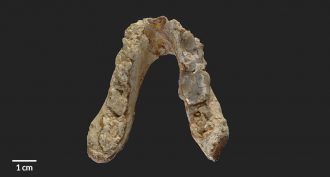 Archaeology
ArchaeologyEuropean fossils may belong to earliest known hominid
New fossils suggest that the earliest non-ape human ancestors may have evolved in Europe, not Africa.
By Bruce Bower -
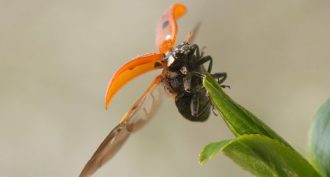 Animals
AnimalsAnalyze This: A massive annual insect migration
A study of seasonal insect migration gave some surprising results.
-
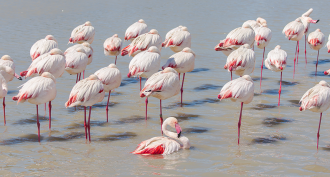 Animals
AnimalsHow a flamingo balances on one leg
Flamingos are so good at balancing on just one leg that they can snooze that way with little effort.
By Susan Milius -
 Animals
AnimalsScientists Say: Extremophile
Some species can survive high heat, freezing cold or other extreme environments. Scientists call these organisms extremophiles.
-
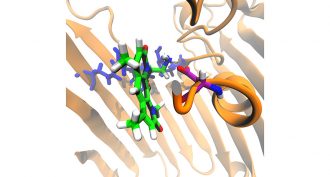 Chemistry
ChemistryNew rules point scientists toward next-gen germ-killers
Shape and other features help germ-killing drugs make it through barriers to enter bacteria. Knowing how they do this could lead to more and better better antibiotics.
-
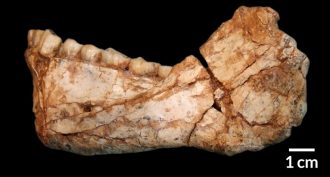 Fossils
FossilsStudy claims to have found oldest human fossils
Humans, as a species, may be much older than previously thought. They also may have evolved further North and West of the suspected cradle of human evolution.
By Bruce Bower -
 Science & Society
Science & SocietyCool Jobs: New tools to solve crimes
Future investigators may identify criminals by the microbes they leave behind or by using DNA-like evidence from strands of their hair.
-
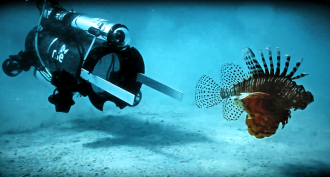 Tech
TechUnderwater robot vacuums up lionfish
Lionfish damage coral reefs in the Atlantic Ocean. A new underwater robot hunts, stuns and captures the bullies with help from a human operator.
-
 Genetics
GeneticsScientists Say: Chromosome
This threadlike structure is made of DNA wrapped around protein. It allows the 3 billion base pairs in human DNA to stay neatly packaged in a cell.
-
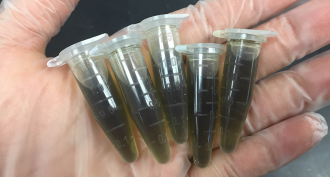 Microbes
MicrobesPlant extract mutes germs to fight infections
A plant extract prevents the aggressive behavior seen in some germs. Using it could fight the development of most bladder infections, a teen’s research suggests.
By Sid Perkins -
 Brain
BrainWhen is an epileptic seizure about to strike?
Two high-school research projects suggest ways to identify early warnings of a coming epileptic seizure. This might give people time to free themselves from potentially dangerous activities.
By Sid Perkins -
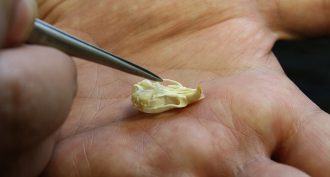 Animals
AnimalsHow the house mouse found its home
Once people started settling down 15,000 years ago, a mouse species followed them indoors. The animals didn’t need people to be farming and storing food.